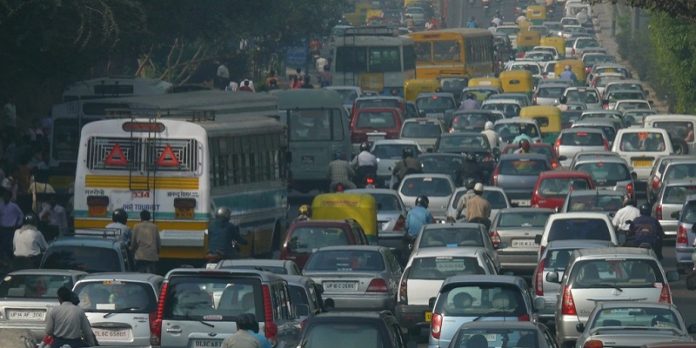Indian cities are considered as most polluted in the world. An estimate suggests that almost 1.6 million deaths occur due to air pollution, which increases the risk of cardiovascular disease, cancer etc.
On average, Indian citizens are exposed to PM2.5 concentrations between 15 and 32 times higher than the air quality guidelines set forth by the World Health Organization.
A new study by the University of Leeds indicates that executing stricter emissions standards in India could save a large number of lives every year.
One of the most dangerous components of air pollution is fine particulate matter (PM2.5), which scientists suggest could double by 2050.
The Indian government has approaches set up to decrease the quick ascent of pollution, for example, checking outflows from transports and trucks and growing the family utilization of liquefied petroleum gas to supplant strong energies.
In the study, scientists compared India’s existing and planned policies to a more aggressive plan to reduce emissions. For this, they used a high-resolution computer model to assess the pollution levels individuals inhale at ground level all through India and test how extraordinary emanations arrangements would influence their presentation and wellbeing.
The team found that under India’s existing and planned policies, dubbed the New Policy Scenario, the rate of growth in Indian citizens’ exposure to pollution decreased by 9%.
Study lead author Luke Conibear, a postgraduate researcher from the Institute for Climate and Atmospheric Science and the EPSRC Centre for Doctoral Training in Bioenergy, said: “India’s ‘business-as-usual’ economic and industrial growth is predicted to increase emissions and further worsen ambient PM2.5 concentrations. Our results show that small emission changes bring small improvements to air quality and human health.”
“Throughout the country, the Clean Air Scenario stands out as the most effective way to reduce ambient concentrations and alleviate some of the burdens from the subsequent diseases.”
Study co-author Dominick Spracklen, Professor of Biosphere-Atmosphere Interactions at Leeds, said: “Our study shows that particulate pollution across India is currently so bad that really stringent emission controls are needed to bring down air pollution to levels that will result in substantial health benefits.”
The study originally is published in GeoHealth.
